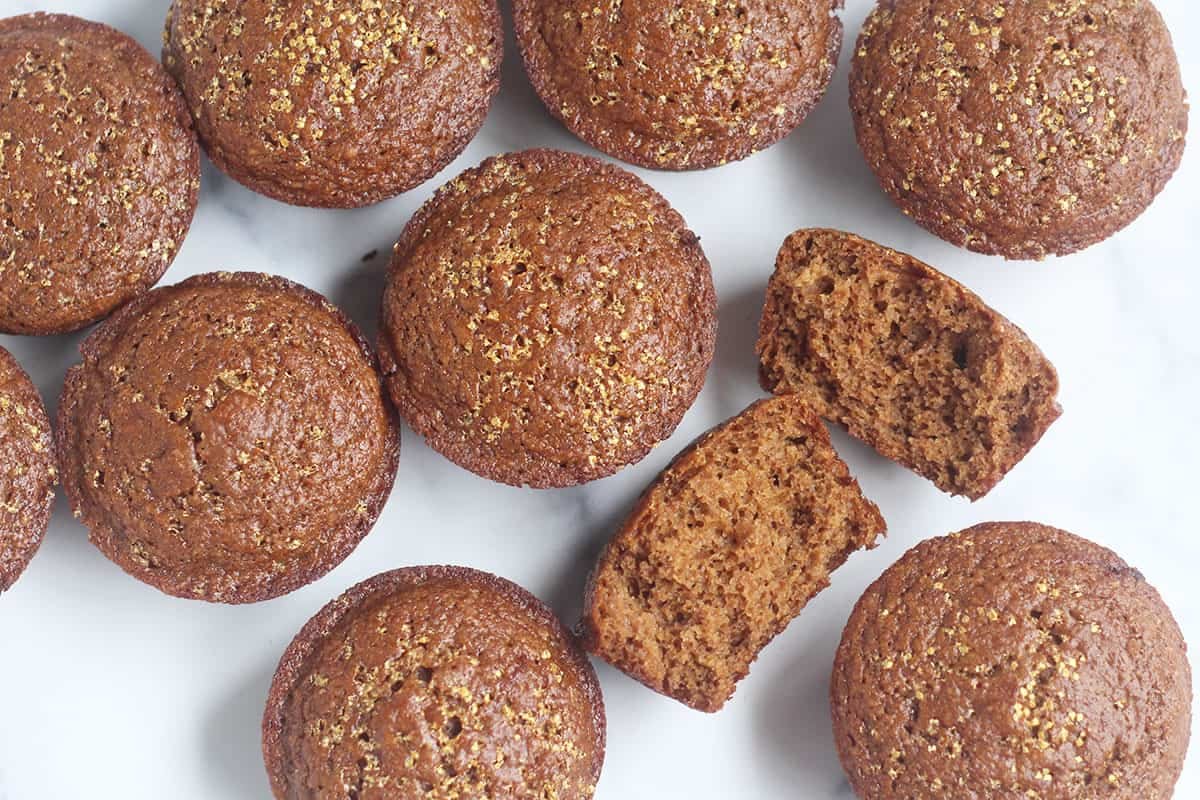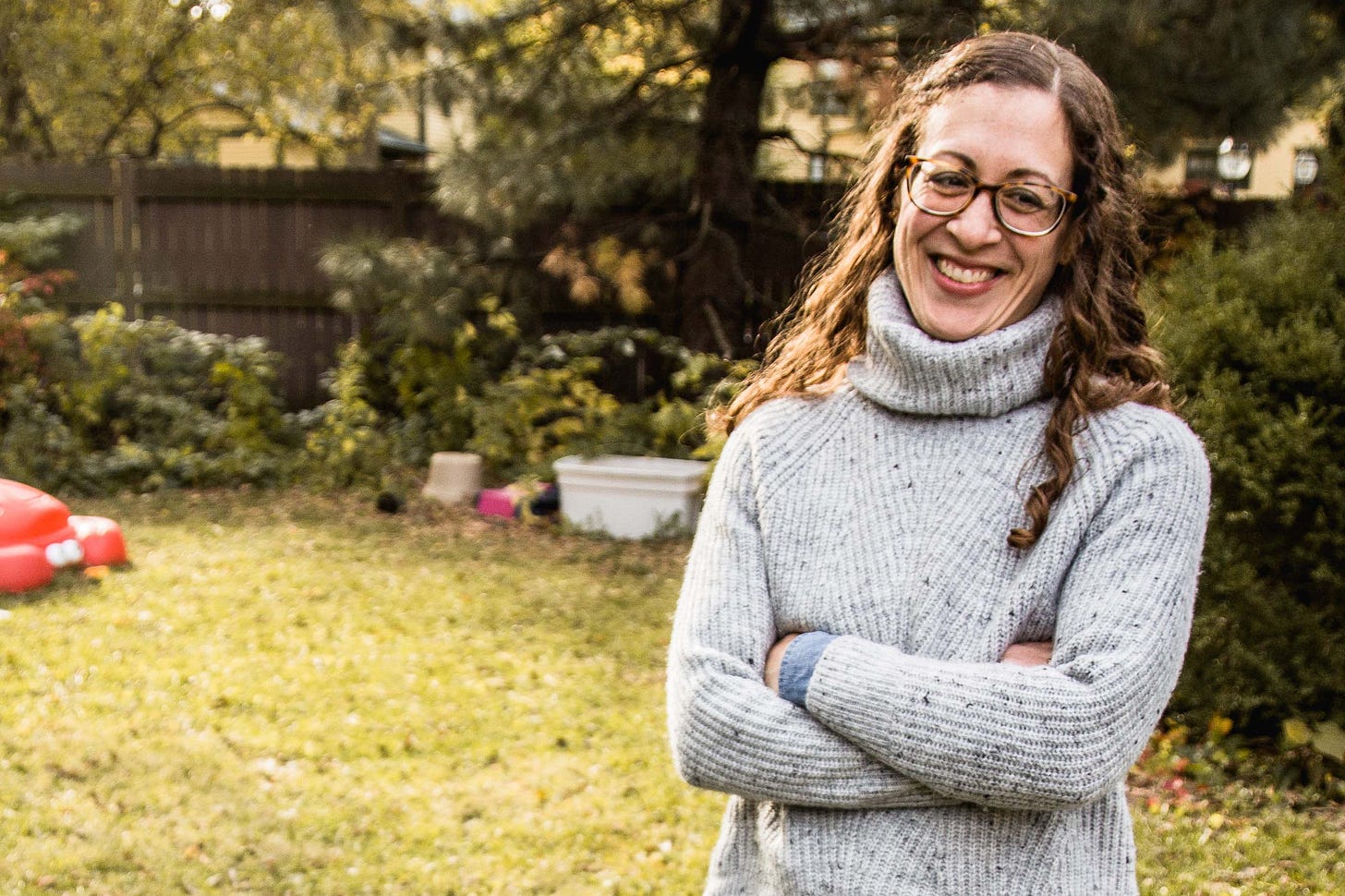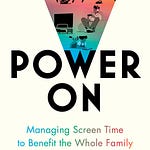“This is exactly what diet culture, and everyone who gives advice on Instagram doesn’t want you to know, because it’s not straightforward. And there’s no clear solution.”
Welcome to Burnt Toast! This is the podcast about why your kids should be eating more waffles and frozen burritos for dinner. We also talk about diet culture, fatphobia, parenting, and a bunch of other stuff. I’m Virginia Sole-Smith. I’m the author of The Eating Instinct and the forthcoming Fat Kid Phobia.
Today’s guest is Burnt Toast fan favorite and friend of the show, Amy Palanjian. Amy is the creator of the kid food blog Yummy Toddler Food. She’s also a mom of three, my lifelong work wife, and my former co-host on the Comfort Food Podcast.
Amy joins us today to dissect the concept of the “back-up meal.” If your kids hate what’s for dinner, should you let them swap it out for something else? And more to the point: Since many of you have told us you are doing this, how do we let go of the guilt they can inspire?
If you enjoy this episode, please subscribe, rate and review us in your podcast player! And make sure you’re subscribed to the Burnt Toast newsletter, for episode transcripts, reported essays and so much more.
Have a question or a topic you want us to tackle in a future episode? Post it as a comment on this episode of the newsletter or send it to virginiasolesmith@substack.com.
PS. Amy’s and my last conversation was about Halloween candy. If you are stressing about holiday food right now, this might be a good one to go back and listen to because all the strategies we talked about for Halloween candy definitely still apply.
Episode 25 Transcript
Virginia
Today we are talking about backup meals. This first came up when I wrote an essay on Burnt Toast about how my grandmothers fed their families. My British grandmother did not cook a weeknight dinner, ever. In England, they have tea as an evening meal. In my grandmother’s house, tea meant literally a cup of tea and two pieces of toast, maybe some sponge cake. That is all you serve and it is possibly genius. I do love that this newsletter is called Burnt Toast. I didn’t know this story about her when I named it that, but it feels very appropriate.
A lot of readers, after that essay, said, "We don’t do exactly that, but if our kids don’t like what we’re eating for dinner, we let them pick a backup meal like peanut butter and jelly or a bowl of cereal." And then you, Amy, messaged me and said, "Oh yeah, our backup meal is a frozen burrito." And my head exploded because you and I have been talking about how we feed our kids for the last eight-and-a-half years and I had no idea you did this!
Amy
We did it with our first kid. She could have toast if she didn’t like the main meal. Then we had more children and I stopped doing it regularly because it seemed like too much work. Instead, I leaned in hard to making sure that there were easy sides on the table. But I’ve got a kid who’s nine, and she likes what she likes. Sometimes she’s willing to try new things and sometimes she’s not. I have discovered that I don’t actually need to make her eat food she doesn’t want to eat. So we have easy options that I don’t actually have to get up and cook. The only problem with our current backup meal is that it requires me to buy a lot of frozen burritos, which I should maybe just embrace. But there’s a particular one from Amy’s that all three of my kids really like. It’s just bean and cheese. I should just buy it by the case.
So, maybe twice a month she really dislikes the meal. She will get up and make herself a frozen burrito. Right now I’m testing recipes for a cookbook, so my kids are seeing recipes that they’ve never seen before, or they’re seeing things in slightly different ways, because we tend to eat the same thing and I can’t make a cookbook with five recipes.
Virginia
No. You need, like, 75 recipes and that is a lot of new food to throw at your kids all the time. That’s like the cobbler’s kids have no shoes. Or in your case, many, many pairs of shoes that they don’t want to wear.
So, an interesting thing to me about the whole backup meal conversation is that when people started telling me they were doing it, it was a little apologetic or ashamed. Like, “Yeah, we know we’re not supposed to, but this happens at our house.” And I just thought, where have we gone wrong here? Because to me, this does not sound like a failure. You have a nine-year-old who’s capable of making her own burrito for dinner! This feels like a triumph! So, let’s unpack this a little bit. Where do you think this sense of backup meals as a parenting failure comes from?
Amy
I think a lot of it is this pressure on family meals, that we’re all eating the same thing. The point of family meals is to expose kids to a range of foods over time so that they eat them. Which, as you and I know, is not really the way that humans work.
Backup meals feel like a departure from what we’ve been taught. So I think it’s both the pressure on family meals to look a certain way and also the way that we talk about the Division of Responsibility. The way that we talk about how we feed our kids doesn’t really allow for the option of the kids just choosing something else.
Virginia
Division of Responsibility can reduce a lot of pressure. But what happens if the kid refuses every piece of food you put on the table? The backup meal is definitely not strict DOR because it’s what they’re trying to get you away from. But there’s also this reality.
Amy
Yeah, I think there’s also something about if we let our kids eat the food that they want, we’re somehow not doing our job. It feels like we’re not succeeding in our parenting goals of raising kids who want to eat a bunch of different foods.
Virginia
Often the foods they want to eat are not foods that we have been told we can feel good about them wanting to eat
Amy
Especially not for dinner.
Virginia
Right. This is where the diet culture piece of it comes in. You’ve made a delicious kale salad with a runny egg on top and some goat cheese and your kid is turning all of that down and would rather have Eggo waffles (not like that’s a story that’s happened in my own house or anything.) You’re not supposed to live on Eggo waffles. But kids are not programmed to want confusing textures like kale and runny eggs all the time.
Amy
I mean, honestly, I don’t ever even want to eat kale. I also think, we serve more vegetables probably at dinner than most other meals, because it’s the meal that we cook more. So, I think if we know that our kids are just going to eat some crackers that we’ve doubly failed.
Virginia
Right, you’ve missed this opportunity to get vegetables into them. We’ve equated dinner with vegetable consumption in a way that’s counterproductive, both to teaching kids to like vegetables and to enjoying dinner.
Amy
Right. Also, kids are the most tired at that time of the day. So giving them the more challenging foods in that context is just silly.
Virginia
If you’re approaching this from that Division of Responsibility mindset, there’s this equating of backup meals with short order cooking. I think we need to sort out the gray area between these things. A backup meal is not helpful if I sit down at the table and my kid immediately demands something different and I have to get up and go prepare another meal. That’s short order cooking. That does legitimately both make me cranky and create a not-great power dynamic between me and my kids and food. So a backup meal is not that. But what is it? What’s your line?
Amy
Well, I’m not getting up.
Virginia
That is the line. Amy’s not getting up.
Amy
I’m not getting up. The kids need to be able to get it on their own. So, we have done the frozen burrito, which my two girls can make on their own, and we have done cereal, which they can bring to the table. The five-year-old needs help because she can’t pour. And we’ve done toast.
In my mind, this is a fairly rare occurrence. It is a way to make sure that the meal is still pleasurable for everyone and that we can have a good experience regardless of what the food is, so I want the food to be super straightforward.
Virginia
I’ll also say, as someone for whom the backup meal is becoming a less rare occurrence—more like a twice a week occurrence—don’t feel bad, if it’s more frequent. For kids with more complicated histories around food, this might be where you are. If settling on a backup meal that they feel good eating an doesn’t create extra work for you enables you to share the meal, and have a fun conversation with your kid, that’s great. That’s going to do so much more for their confidence and comfort level around food than dying on the “But I put rolls on the table and that’s your safe food and why won’t you eat the rolls” mountain. They’re like, “Because these rolls have seeds on them and I hate rolls with seeds.” Now you’re in a whole hellscape.
Amy
My kids can spot a seed from like seven miles away.
Virginia
Seeds are such a problem, and yet my children love everything bagels which are covered in many kinds of seeds.
Speaking of bagels, I want to list some of the options people said they use as backup foods because I think these all fall into that criteria you’re sketching out of very minimal prep, kids can access themselves, and you can quickly move on with the rest of the meal. So: yogurt, cereal, simple sandwiches, PB&J type things, bagel and cream cheese, sliced turkey, peanuts, cheese and crackers.
I also appreciate the mom who said, “Whatever they can safely get out of the fridge by themselves” because that seems like a fair bar. Any other options that you would recommend or that I haven’t listed there?
Amy
Frozen foods, like burritos. You mentioned waffles.
Virginia
Waffles are huge in my house.
Amy
We don’t do mac and cheese as this option, but you could get those individual microwavable servings.
Virginia
Another piece we need to talk about is the timing. I have been experimenting with, rather than having it happen in that moment of everyone sitting down at the table, I have been talking to my kid ahead of time and saying, “Here’s what I’m making for dinner. Do you want that? Or would you like a bagel or a waffle?” And the reason I like that is because then we don’t have the super stressful panic attack moment at the table where she feels overwhelmed by stuff she doesn’t want to eat. It gives her more confidence going into the meal that she knows there’s going to be something there she likes. But I don’t know if that would work for everybody.
Amy
I would much rather bring everything to the table, including whatever easy sides I’ve decided to include, and see how that goes first. Because if I offered a frozen burrito every night, they would probably always take it. Usually the reactions that my kids have about food are worse when they don’t see it. Like if I was saying, “I’m making pasta,” they’d be like, “What shape? What color? Is there cheese?” I don’t have the bandwidth to have the pre-negotiation. So I would rather just wait, even though, it could create a hiccup.
Virginia
I think you have to know your kid’s temperament. We were stuck in a bad pattern of kids sitting down to the table and screaming. That was super triggering for me, because I literally just finished putting effort into this meal. I want to sit down and enjoy my food and instead I’m having to sort out whether or not you’re going to eat it. So deciding ahead of time, even if it means she’s defaulting to the backup meal more often, is reducing our dinnertime conflict so much that it feels worth it. But I completely agree. I’m saying, “Do you want ramen noodles and kimchi or do you want a bagel?” It’s not shocking that she’s like, “Bagel, please.” She may be saying that more because I’m asking.
So another work-around is to think about how you can still make the meal feel inclusive for them. I still serve the rest of the dishes family style, and every now and then if she sees something she does want a bite of, or there’s a new food, and I’ll say, “Do you want some of this on your plate?” I’m not ruling out the idea that she would eat the rest of the meal. I’m just like, “Okay, you want a bagel on your plate and then there’s this other stuff you can choose from.” This is why we have to get away from these hard and fast rules about how family dinner has to go, because this is what’s working in my house. But it needs to play out differently in your house.
Amy
I think we need to give ourselves plenty of room for this to change and adjust to whatever phase that you’re going through. This is exactly what diet culture and everyone who gives advice on Instagram doesn’t want you to know, because it’s not straightforward: there’s no clear solution. The key here is being responsive to your family in the context.
I think as my kiddo is getting older, I’m trying to see where I can give her more independence and let her be more in charge. And that’s not every night, but we want them to be able to respectfully speak up when they want to add something else to their plate. Even if it’s a condiment, or if they want a different drink. These are subtle ways that they can advocate for themselves in those situations. So, practicing that a little bit more, especially as kids get into middle school, and they might start hearing stuff. I just want some of those tools to be practiced.
Virginia
That’s a useful way of reframing this. I think the reason people were embarrassed to admit they did the backup meal is because it felt like overly catering to their kid, and because the food that the backup meal is isn’t “good” food for family dinner. But when we think about our big picture goal, it’s not to have a kid who eats everything that we serve. It’s to have a kid who can navigate the strange waters of, “What am I hungry for? What do I need at this meal? Is that different from the messages I’m getting?” The family dinner is a place to practice that before they’re out in the world, and the messages they’re getting are diet culture messages. Having them be firm and able to stand their ground in knowing, “this is how my needs will be met at this meal.” That’s the whole goal. That’s what we’re doing.
Amy
I’ve been thinking about this more this past year, because it’s been very hard for me to feel excited about food through COVID and all the stress. I’m hungry physically, but not much is appealing. So I am very aware of what it feels like when someone else offers me food that I don’t want. It’s a horrible feeling when someone wants you to eat something and you don’t want it. It’s that pressure that comes with knowing someone wants you to do something that you just, in your body, don’t want to do. I’m not saying this is always going to happen at the dinner table. But It’s liberating to look at this as part of raising a competent eater.
Virginia
A kid who can advocate for themselves and who knows that what feels safe in their body matters more than making other people happy. That’s important.
Amy
On Instagram recently, I had posted this reel that gave ways to help kids engage with their food and to help them feel more in control of their food. There were a lot of comments from people saying things like “This generation of parents gives their kids too many choices.” It’s not like previous generations of adults had great relationships with food. Why would we not do something different?
Virginia
We’re actually trying to unlearn some stuff here.
Okay, so back to nuts and bolts. Do you think it should always be the same option, no matter what? Or would you rotate? One idea I got from a follower was that the backup meal is always cereal, but the kids can pick which kind of cereal, which seems like a nice framework if you’re a family that stocks multiple kinds of cereal, which we are.
Amy
It rotates based on what we have in the house. Some weeks, we might have frozen burritos. And then some weeks, we might just have a lot of bread. Or we might have muffins that I made.
Virginia
You could get caught in a really frustrating power struggle if your backup meal is a burrito and she’s like, actually, I don’t like burritos anymore. And then it’s like well, now what am I doing?
Amy
Yeah. I keep it fairly loose.
Virginia
What about if you’re dealing with multiple kids? Do siblings get the same backup meal option? Or would you kind of customize it for each kid?
Amy
So, the last time that we had a burrito with the oldest, I thought that the younger two were going to ask for one, but they wound up not. We did have one meal where nobody was happy so they brought cereal to the table, and then all the kids had a bowl of cereal. Sometimes, one of them asks for cheese and crackers and they’ll just bring it to the table and then anyone who wants it can have it. It just gets very chaotic when you’ve got multiple kids. And I don’t want the whole kitchen on the dining table.
Virginia
Because that’s overwhelming for kids, too. And messy and frustrating for you. But this is not hard and fast. There are going to be scenarios where it would make sense to customize, certainly if you have kids with an age difference that impacts their chewing ability, like a young toddler and a preschooler, you might have to do different backups. But I agree, if our big picture is less work for us, then whatever reduces the chaos makes sense.
The other piece of it we should talk about more is, should kids be in charge of getting it themselves? I know that’s what your nine-year-old is doing. I was all for this at first, because it does sound like the best way to reduce the work, especially if you’re waiting to make the backup meal call at the table.
But when I talked about this on Instagram, Diana Rice of @anti.diet.kids raised some great points. She works with kids with ARFID and other traumatic feeding histories, and her concern was that if you have a kid who is regularly needing a backup option, leaving them to fend for themselves could make them feel really isolated and could add to the stress of managing that condition. I think that’s a piece that’s worth considering.
Amy
I think it's all about what your reaction is in the moment when you're having that conversation with your kid. It would be very easy to take their disinterest in the meal personally, and to say something like, “Well, fine, go get your own food.” It's hard to not have emotional reactions when the kids don't want the food that we make. But I think the more you can remember that dinner is a time to be together, everyone may or may not eat the same thing, that's not really the end all be all goal here. There could be a way that your kid can go get their food, and then you ask them to tell you a joke, or you get the conversation off of the food.
Or if their backup meal is always the same thing—like if it is always bagels in your house—maybe you put those bagels someplace that your kid can reach near the toaster with the stuff that she would need. Just like we have a snack bin, so after school the kids can get their own snacks.
Virginia
I think this comes down to intention. You don't want the child to feel like they have failed because they're opting for the backup meal option. Just like you shouldn't perceive this as a failure of your own parenting or food prep skills. The goal is to have a kid find this empowering. My eight-year-old has a traumatic feeding history and this has always been our way through: Giving her as much control as makes sense to give her. So for her, it's confidence-building that she can make her own waffles or she can go get something she wants from the fridge. But for another kid who is in a different place with that struggle, it could feel like they aren't being cared for.
Amy
Especially if they're younger, too.
Virginia
Yes, obviously we're not saying expect your three year old to hop up and go peel a banana. Another piece of advice from Diana is to consider making the backup meal into a bedtime snack. So if your kid doesn't eat a lot of dinner, you don't have to worry about them going to bed hungry because you can give them the cereal, or whatever, as the bedtime snack. Make that something sort of predictable and something they can rely on and that is minimal prep work, which is similar to how you do bedtime snacks at your house.
Amy
Yeah, ours is a banana or no banana. That's the option that we have, just because it's very straightforward. And I don't want to be negotiating with small children at that time of the day. For my two-year-old, if he didn't eat dinner and he ate a banana, that would be enough food for him. Because he, at this time in his life, has a very small appetite at that time of the day. I just don't know that that would be enough for some kids. You have to read the room.
Virginia
My four-year-old basically never has a bedtime snack because her bedtime comes really soon after dinner. But my eight-year-old does. She's our night owl kid. And she, regardless of whether she eats dinner or not, will often make two or three more waffles, because who doesn't love a bedtime waffle?
I think we, as parents, are always looking for food rules. That's what diet culture teaches us to do. And also, parenting kids is hard and it's more helpful to do it with a roadmap. You want to make these rules, like we don't do a backup meal, or if we do a backup meal, it's only this. But the way the math plays out at your house might be different.
Amy
I think it's okay to trust yourself a little bit more, even if what you decide to do is not the conventional wisdom. Or if what we're saying makes no sense to you, I think that's fine, too.
Virginia
Yes. If you've gotten this far into the episode and think, Well, they are crazy and unreliable, that’s fine. We're comfortable with that.
I'll wrap up by talking a little bit about how this has worked at our house. I was blown away by this whole concept when people introduced it to me. I was thinking and talking about it all week on Instagram.
That weekend, Dan was cooking—he cooks on Sundays a lot. He was doing a roast chicken and some vegetables, which is a meal three out of four of us like. As he was getting started, he said to our eight year old, "I'm doing chicken and vegetables for dinner. Do you want a bagel?" And she said yes. And then she just happily went off to play and that was it. And I said to him, “Oh, that reminds me, were you following my Instagram this week? We need to decide if we're going to do backup meals.” And he goes, "Oh, I hate that idea." And I was like, "Wait, but you just did it. That's the backup meal."
It turned out that he thought I meant short order cooking. Like, we sit down to dinner they don't like and we'll get up and cook you a backup meal at that point. And I was like, “No, no, no, no, no. It's the thing that you just did of giving her another option.” And he was like, "Well, that's what I always do. Why wouldn't we do that?" It was not something I was doing, but it's how he has been approaching it whenever he cooks family meals. I hadn't noticed, somehow. So, we've apparently been doing it all along with great success.

Butter For Your Burnt Toast
Amy
I have a relatively new recipe for gingerbread muffins. They're straight up holiday-spiced goodness. They store incredibly well. And they have molasses in them, so they're crazy moist. I usually make a double batch and put half in the freezer. I've been putting very pretty gold sugar on top (from Wilton) so they're kind of festive.
Virginia
They're really cute. I appreciated them on your Instagram.
Amy
I guess it's a unique enough flavor that it feels special. Even though it's just a muffin. It makes me feel like I've tried harder even though it's just stirring stuff together in a bowl.
Virginia
My recommendation is a little bit random and has nothing to do with food. But I am a broken human being and I do not like to tie shoelaces because it's just time in my day that I don't want to invest in that task. This is how I feel about you know, teeth brushing and showering, too. But I do do those things every day.
Amy
I was just going to say that I don't actually ever untie my shoes. Is that unusual?
Virginia
How do you get them on your feet?
Amy
I guess they're loose enough that I just slide my feet in? I don't know.
Virginia
I didn't know that was an option, so I spent $12.95 on these special shoe laces that I'm about to tell you about. Maybe there's something to my foot shape? Don't shame my foot shape. I need these! Okay, so the laces are called Xpand Laces. They are basically just elastic that comes in colors. So, I got white to match my sneakers. You lace them just like you would lace a normal sneaker and then there's a little clip thing at the end that holds the lace inside your shoe so you don't have to tie your laces. And then you can just shove your foot in. I have these cute Veja sneakers that I got for fall / winter. I just pretend the V stands for Virginia. I'm so happy because now I'm wearing them a ton.
You can cut the laces to any length, so they would be a great option for kids. I'm secretly hoping that laced-up shoes for kids are just gonna go the way of cursive handwriting because it is a mountain we have yet to climb in my house. We're still buying velcro shoes. Fortunately, my children have smallish feet so I can still find velcro shoes in their size, but that ship is gonna sail. And we're going to have to either learn how to lace their shoes or get these shoe laces.
Amy
Also, the amount of energy that I spend telling my oldest child to tie her shoelaces instead of just walking on them? That would be nice not to have to do.
Virginia
Let's just remove shoelaces from our mental load.
Amy
You're solving everyone's problems.
Virginia
You're welcome. Alright, Amy, thank you, as always for being here! Remind listeners where they can find more of your work.
Amy
You can find me at Yummy Toddler Food Or @Yummytoddlerfood on social.
Thanks so much for listening to Burnt Toast. Once again. If you'd like to support the show, please subscribe for free in your podcast player and tell a friend about this episode and consider a paid subscription to the Burnt Toast newsletter. It's just $5 per month or $50 for the year.
The Burnt Toast Podcast is produced and hosted by me, Virginia Sole-Smith. You can follow me on Instagram or Twitter.
Burnt Toast transcripts and essays are edited and formatted by Corinne Fay, who runs @SellTradePlus, an Instagram account where you can buy and sell plus size clothing.
The Burnt Toast logo is by Deanna Lowe.
Our theme music is by Jeff Bailey and Chris Maxwell.
Tommy Harron is our audio engineer.
Thanks for listening and for supporting independent anti diet journalism.












